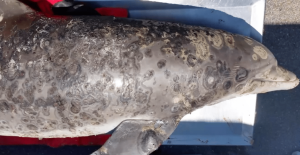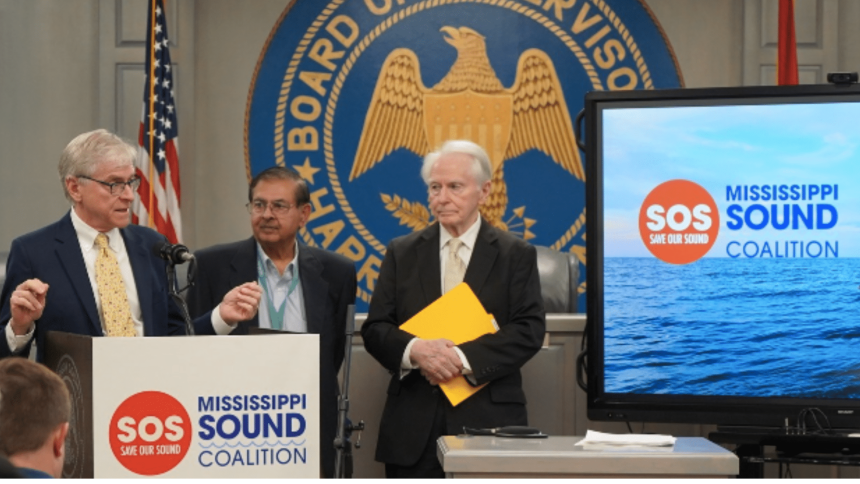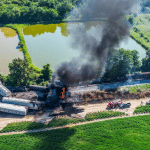Local leaders on the Gulf Coast have filed a complaint against the U.S. Army Corps of Engineers (USACE) to protect dolphins in the Mississippi Sound from pollution from the infamous Bonnet Carré Spillway.
The Mississippi Sound Coalition (MSSC) took to the U.S. District Court for the Southern District of Mississippi to file the motion under the Marine Mammal Protection Act to defend the aquatic species from experiencing additional harm from polluted, low-salinity Mississippi River water entering the Sound through the spillway.
Large volumes of fresh water from the river released into the body of saltwater upon the spillway’s openings in 2011 in 2019 directly caused physical ailments and death to bottlenose dolphins and the USACE is required to acquire an incidental take permit any time their actions cause harm to an endangered species, the complaint contends.
The spillway was opened both years due to Mississippi River flooding, but the unintended consequences of the low salinity water are believed to have resulted in skin lesions, abnormal blood chemistry, secondary infections, and death of bottlenose dolphins.
RELATED: Federal court rules Bonnet Carré Spillway opening caused harm to Mississippi Sound
Statistics from the National Oceanographic and Atmospheric Administration (NOAA) cited in the complaint show that the highest recorded numbers of dolphin strandings — circumstances when the animal is found dead, either on the beach or floating in the water, or alive on the beach and unable to return to the water — in the Mississippi Sound occurred in 2011 and 2019.
“The number of stranded dolphins documented in Mississippi as exhibiting these shocking lesions was approximately 50% of the total, as compared to approximately 10% in Alabama and 7% in Florida,” the complaint states.
Dr. Moby Solangi, President and Executive Director of the Institute for Marine Mammal Studies, elaborated on the health issues within dolphins created by introducing massive quantities of fresh water from the Mississippi River into the saltwater body.

“Rivers and tributaries from 31 states flow into the Mississippi River and eventually empty into the Gulf of Mexico, and, when the Bonnet Carré Spillway is opened, into Lake Pontchartrain, Lake Borgne, and the Mississippi Sound,” Solangi continued.
“Animal waste and agricultural and industrial runoff present in the Mississippi River drain into the Mississippi Sound, thereby polluting it with contaminants like antibiotics and mercury and nutrients like phosphates and nitrates. Pollutants in the water travel up the food chain and are ultimately consumed by top predators, including dolphins. The so-called fresh Mississippi River water released by the Bonnet Carré Spillway reduces the salinity in the Mississippi Sound to an unnatural point that is fatal for many dolphins.”
With these scientific findings in mind, through its lawsuit, MSSC is asking for the federal court to:
- Declare that the USACE has acted contrary to law and/or has unlawfully withheld or unreasonably delayed agency action in taking bottlenose dolphins through the operation of the Bonnet Carré Spillway and failing to obtain an incidental take permit.
- Order the Corps to fully comply with the requirements of the Marine Mammal Protection Act.
- Require the Corps to take action to avoid taking bottlenose dolphins through the operation of the Bonnet Carré Spillway.
- Award the plaintiffs their attorneys’ fees and costs as required by applicable rules and statutes.
- Award such other and further relief as is proper.
“Scientists have referred to the bottlenose dolphin, due to its role as a long-lived apex predator, as a sentinel of the health of the marine ecosystem,” Co-counsel and Manager of the Coalition, Gerald Blessey, said
“The dolphins are telling us something. We must act on these warning signs, protect our dolphins from further harm, and protect our Mississippi Sound estuary along with our economy and our way of life that depend on it.”
The coalition contends that the USACE has the capability to implement flood control measures without directly impacting aquatic life on the Mississippi Sound.








